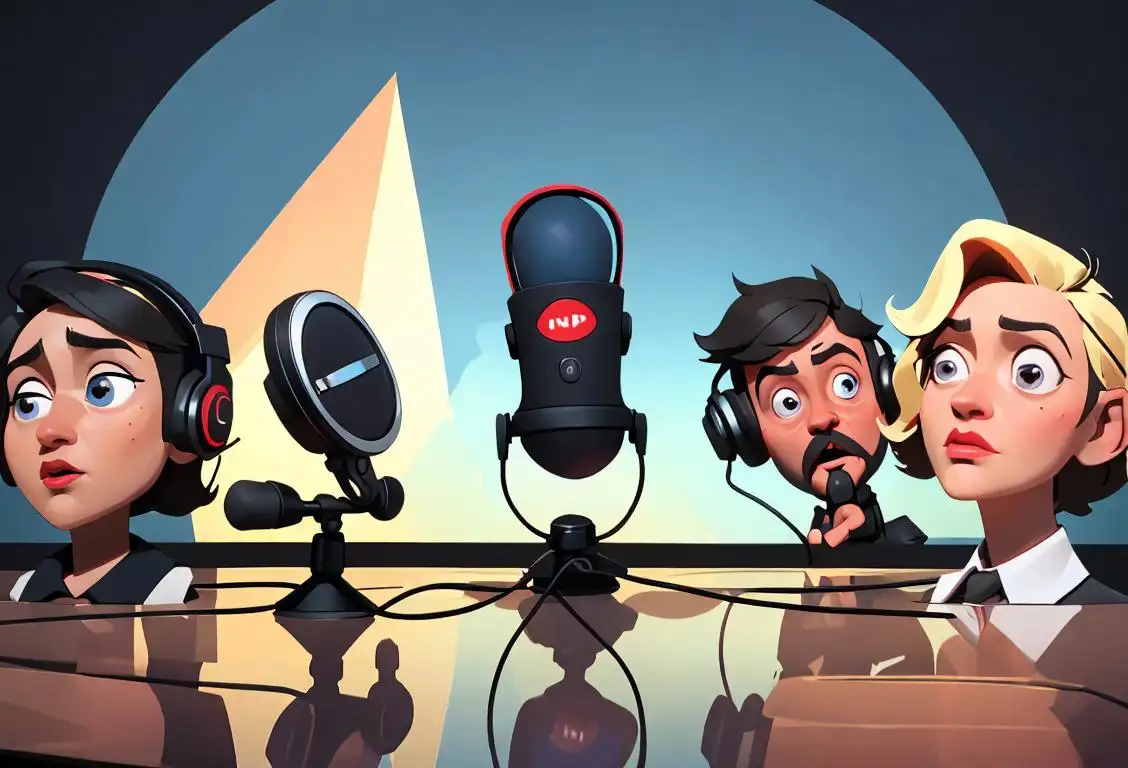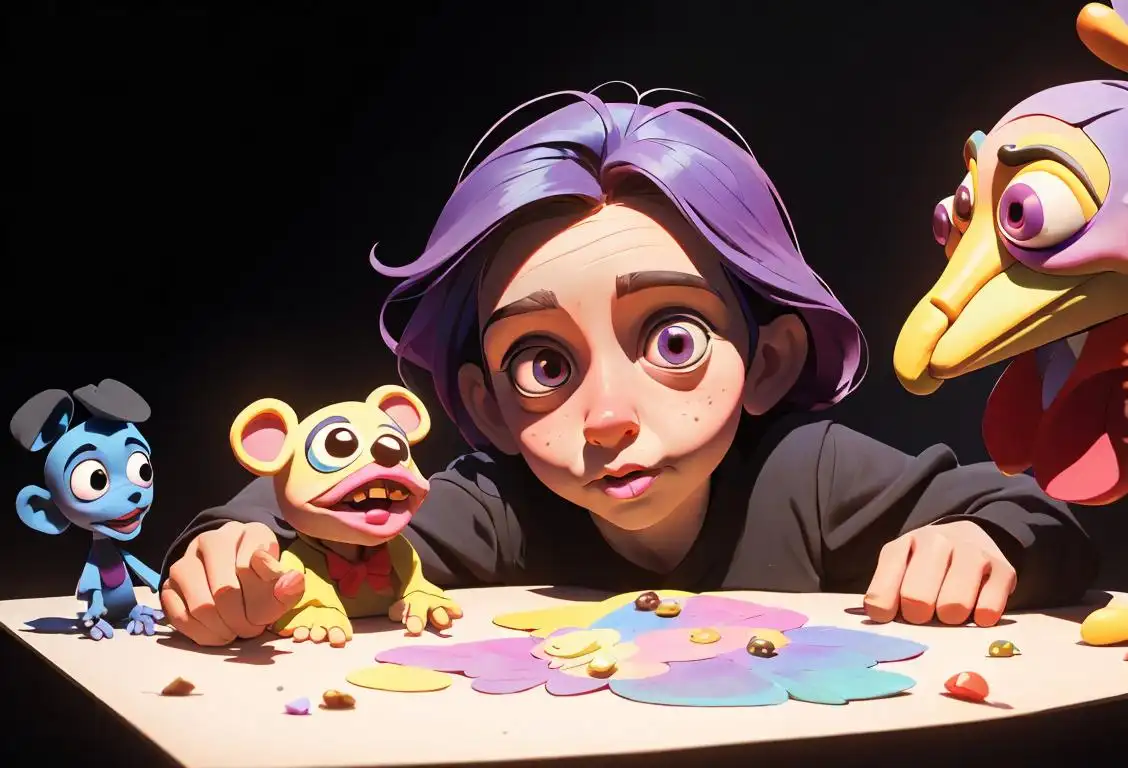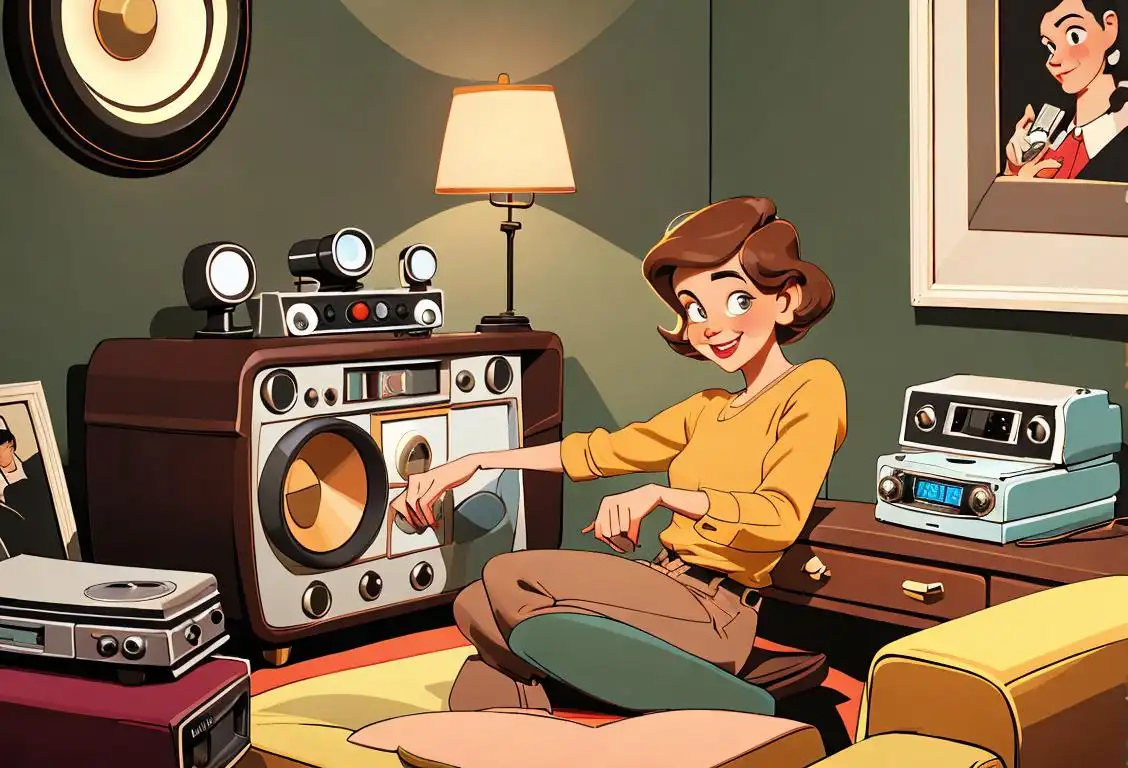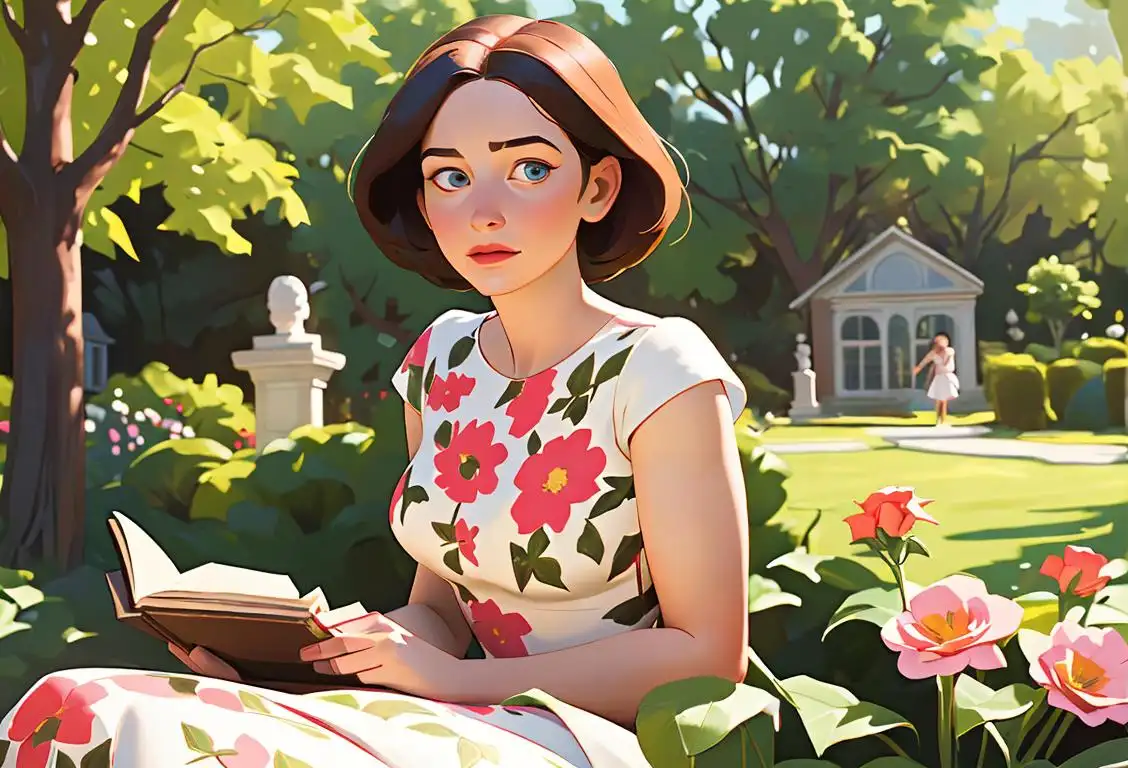National Drama Day
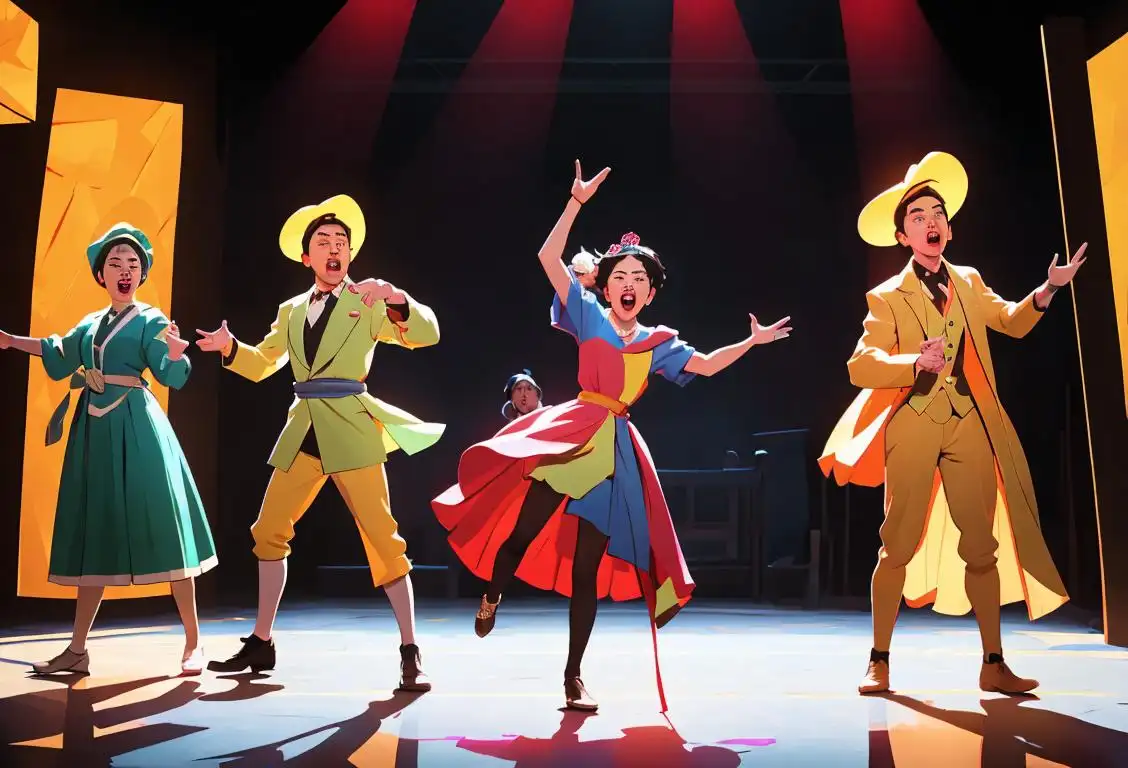
Welcome to the dramatic article about National Drama Day! Grab your popcorn and take a front-row seat because we're about to dive into the captivating world of drama.
When is Drama Day?
It's national drama day on the 28th July.
A Brief Journey into Drama
Picture this: a dimly lit theater, the curtain rises, and the audience holds its breath. Drama has a way of captivating our hearts and minds, transporting us to different worlds and immersing us in compelling stories. National Drama Day celebrates the art of dramatic expression and the impact it has on our lives.
Drama, in all its forms, has been a part of human culture for centuries. From ancient Greek tragedies to modern-day soap operas, it has the power to evoke intense emotions, entertain, and provoke thought. Whether it's on stage, television, film, or even in our own lives, drama adds an extra layer of excitement and intrigue.
On this special day, theater lovers, actors, and drama enthusiasts come together to honor and appreciate the craft of drama. It's a chance to celebrate the talented individuals who bring stories to life and the countless hours of rehearsals, script readings, and behind-the-scenes magic that go into creating memorable performances.
A Flashback to Internet History
When it comes to National Drama Day, the internet has its fair share of dramatic moments. We detected 29 online mentions, and the peak of drama was on July 28, 2016. Social media platforms and online communities often serve as a stage for passionate debates, viral controversies, and, of course, meme-worthy moments. Drama spreads like wildfire on the internet, sometimes fueled by misunderstandings, sometimes by genuine conflicts. It's an arena where people exercise their freedom of expression, for better or for worse.
Did You Know?
Did you know that some of the most famous dramatists in history, like William Shakespeare and Henrik Ibsen, started their careers as actors? They eventually found their true calling in writing and created timeless masterpieces that continue to be performed to this day. Talk about a dramatic career change!
History behind the term 'Drama'
5th century BC
The Origins
The term 'drama' finds its roots in ancient Greece, where it originated from the Greek word 'drama,' meaning 'action' or 'deed.' In the 5th century BC, drama was performed in religious festivals, including the Dionysia, to honor the Greek god Dionysus. It was a form of storytelling that combined elements like music, dance, and dialogue to depict both tragic and comedic events.
5th century BC
Ancient Greek Origins
The term 'drama' finds its origins in Ancient Greece, where it was derived from the Greek word 'dran' which means 'to do' or 'to act'. Drama in Ancient Greece originally referred to a performance or representation of a story that was acted out by performers on a stage.
5th century BC
The Rise of Tragedy
During the 5th century BC in Ancient Greece, drama evolved into two distinct genres: tragedy and comedy. The works of playwrights like Aeschylus, Sophocles, and Euripides brought tragedy to prominence. Tragedies explored themes of human suffering, fate, and morality, often focusing on heroic figures facing unfortunate circumstances that lead to their downfall.
3rd century BC
The Evolution
During the 3rd century BC, drama started to undergo significant transformations. The Greek playwrights, such as Aeschylus, Sophocles, and Euripides, introduced more structured plays with specific genres like tragedy. The art form expanded its influence and began exploring various themes, including politics, morality, and human nature.
5th century BC
The Birth of Comedy
Alongside tragedy, Ancient Greek drama also gave birth to comedy. Playwrights like Aristophanes created comedic works that provided social and political commentary through humorous and satirical portrayals. Comedy often featured exaggerated characters and situations, mocking societal norms and figures of authority.
16th century
Renaissance Theater
In the 16th century, drama experienced a resurgence with the advent of Renaissance Theater. It spread across Europe, particularly in countries like England, France, and Spain. The emergence of prominent playwrights, including William Shakespeare, Christopher Marlowe, and Molière, showcased the talent and creativity of the time. The performances shifted from religious rituals to public theaters, attracting a broader audience.
Medieval and Renaissance
Religious Drama
During the Medieval and Renaissance periods, drama took on a religious significance. Biblical stories were enacted as part of religious ceremonies and festivities, with plays performed in churches or outdoors. These religious dramas were used as a means to educate and engage the public, presenting moral and religious messages in an accessible way.
19th century
Romanticism and Realism
In the 19th century, drama witnessed two significant movements: Romanticism and Realism. Romanticism emphasized emotion, individualism, and the supernatural while Realism focused on representing everyday life. Playwrights like Victor Hugo, Henrik Ibsen, and Anton Chekhov explored themes like social injustice, psychological complexities, and societal norms, challenging the conventional ideas of drama.
20th century
Modern and Avant-Garde
The 20th century brought further evolution to drama with the rise of modern and avant-garde theater. Playwrights like Samuel Beckett, Bertolt Brecht, and Tennessee Williams pushed the boundaries of traditional storytelling by experimenting with unconventional narratives, non-linear structures, and innovative staging techniques. This period witnessed the exploration of deeper psychological and existential themes, reflecting the societal changes and anxieties of the time.
16th and 17th century
The Golden Age of English Drama
The 16th and 17th centuries witnessed a flourishing of drama in England, often referred to as the 'Golden Age of English Drama'. Playwrights like William Shakespeare, Christopher Marlowe, and Ben Jonson crafted timeless works that continue to be celebrated today. The Elizabethan and Jacobean eras produced masterpieces encompassing tragedy, comedy, history, and romance.
19th century
Realism and Naturalism
In the 19th century, drama underwent a transformation with the emergence of realism and naturalism. Playwrights sought to depict everyday life with greater fidelity, exploring the social issues and realities of the time. Henrik Ibsen's works, such as 'A Doll's House', challenged societal norms and sparked discussions on gender roles and individual freedom.
21st century
Contemporary Drama
In the 21st century, drama continues to thrive in various forms, including theater, television, and film. The advancements in technology and globalization have led to a diverse range of storytelling styles and platforms. Contemporary drama explores a wide array of themes, from global issues to personal struggles, providing a platform for social commentary and cultural expression.
20th century
Avant-Garde and Experimental Theatre
The 20th century witnessed the rise of avant-garde and experimental theatre movements. Playwrights and theatre practitioners like Antonin Artaud, Bertolt Brecht, and Samuel Beckett pushed the boundaries of traditional drama, experimenting with unconventional storytelling techniques, fragmented narratives, and non-linear structures. These movements aimed to evoke emotional responses and challenge audience expectations.
Modern Era
Drama in Film and Television
With the advent of film and television, drama expanded its reach beyond the stage. The performing arts found new mediums of expression, as plays were adapted into films and serialized television dramas captured audiences worldwide. These visual storytelling mediums continue to evolve and influence contemporary drama, combining elements of acting, cinematography, and scriptwriting.
Did you know?
Did you know that some of the most famous dramatists started their careers as actors?Tagged
fun history entertainmentFirst identified
8th August 2015Most mentioned on
28th July 2016Total mentions
29Other days
Podcast Day
Puppetry Day
Radio The Day
Video Games Day
Popcorn Day
Helen Day
Drama Day
Convention Day
Liberation Day
Teacher Appreciation Day
